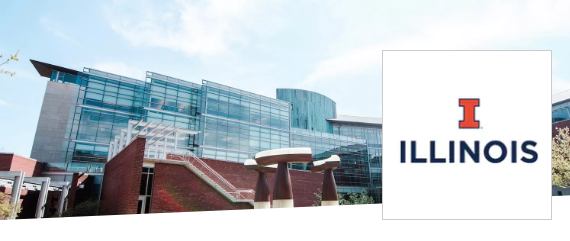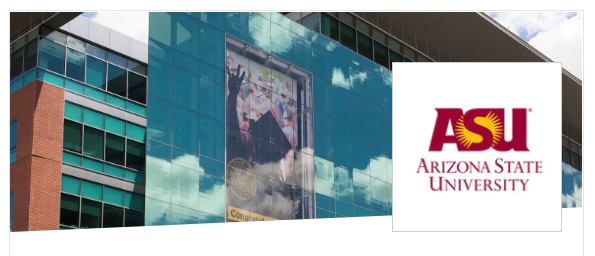| Online Master Of Computer Science Degrees From Coursera |
| Written by Sue Gee |
| Tuesday, 15 May 2018 |
|
Both the University of Illinois and Arizona State University are now offering Master's degrees in Computer Science in partnership with Coursera. Is gaining an online masters a worthwhile undertaking? Disclosure: When you make a purchase having followed a link to Coursera from this article, we may earn an affiliate commission. Coursera and the University of Illinois already offer an entirely online Master of Computer Science in Data Science (MSC-DS), see Coursera Offers MOOC-Based Master's in Data Science and now there's a more general Master of Computer Science (MCS) along the same lines. The Illinois MCS is a non-thesis degree for computing professionals that requires 32 credit hours of graduate coursework. Students can complete the eight courses required for the Online MCS at their own pace, within a five-year window. Lectures are delivered through the Coursera platform, but students are advised and assessed by Illinois faculty and teaching assistants on a rigorous set of assignments, projects, and exams required for university degree credit. The cost of tuition is $600 per credit hour for eight 4-credit hour courses, and is billed as each course is taken. Students can complete the degree in as little as one year taking three or four courses per term, while others will finish in two to three years by taking one course per term. Students needing to skip a term due to work, family, or other life interruptions do not pay tuition for that semester. Coursera fees of $79 per course and exams fees are charged separately. The Master's degree aims to build their expertise in four core areas chosen from the following:
Applicants should possess a bachelor's degree is computing or if some other discipline sufficient background in object-oriented computer programming, data structures and algorithms. The next cohort starts on August 16, 2018 and the final deadline for applications is May 30, 2018 The early deadline for the Master of Computer Science from Arizona State University has already passed but the final deadline in July 20. There is an application fee of $70 for domestic (i.e. US-based) applicants and $90 for international ones. Tuition costs $15,000 - not including the costs of the Coursera courses - and there are options for financial support. The areas of focus for this MCS, which requires students to choose 10 courses from 20 options are AI, Software Engineering, Cloud Computing, Big Data, and Cybersecurity. You’ll also create a project portfolio of 4 projects that you’ll use to showcase your experience to prospective employers. Projects include:
While gathering the details of these two master's degrees I wondered about the next application deadline for the Online CS Masters first offered by Georgia Tech in Spring 2014 in partnership with Udacity and AT&T. Having discovered that the Fall 2018 deadline passed on April 1st with the current deadline being September 1st for Spring 2019 there is some recent news about its impact. In terms of numbers, Georgia Tech hasn't achieved its ambitious target of enrolling 10,000 students within three years, enrollment expanded from 380 students in spring 2014 to 6,365 in spring 2018, making it the largest master's degree program in computer science in the U.S., and likely the world. The analysis reveals that demand for the online program is large: it attracts over 3,400 applicants annually, about twice as many as its in-person equivalent. Some 61 percent of applicants are admitted, almost five times the 13 percent admission rate for the in-person program, and 80 percent of those admitted enroll. The typical applicant to the online program was a 34-year-old midcareer American, while the typical applicant to the in-person degree was a 24-year-old recent graduate from India. Students admitted to the online program typically had slightly lower academic credentials than those admitted to the in-person program, but they performed slightly better in their identical and blind-marked final assessments, a finding the study hailed as: “the first rigorous evidence that we know of showing that an online degree program can increase educational attainment.” The cost of gaining an online Masters in Computer Science from Georgia Tech is substantially lower than either of the Coursera offerings and you can take the same courses it offers on Udacity for free. This leads us to the question of whether a Master's degree is ever likely to pay back its cost - both financial and in terms of time. In Is Your Degree Worth Its Cost?, which reported on Stack Overflow findings, there was no discernible advantage in having a Master's Degree over a Bachelor's and that having a university degree led to a salary increase of only £3K per annum. The main case for doing a Master's degree seems to be for personal interest and it may be that, unless you want an academic career where the prestige bestowed by a degree from the University of Illinois has cachet, completing the courses on the Cousera or Udacity platforms can fill that need.
More InformationMaster of Computer Science Illinois/Coursera Master of Computer Science from Arizona State University An Elite Grad-School Degree Goes Online Related ArticlesCoursera Offers MOOC-Based Master's in Data Science Masters Level Computer Science From Udacity Is Your Degree Worth Its Cost? Admissions Open For Online CS Masters Degree What is a Data Scientist and How Do I Become One? To be informed about new articles on I Programmer, sign up for our weekly newsletter, subscribe to the RSS feed and follow us on Twitter, Facebook or Linkedin.
Comments
or email your comment to: comments@i-programmer.info |
| Last Updated ( Thursday, 21 November 2019 ) |




